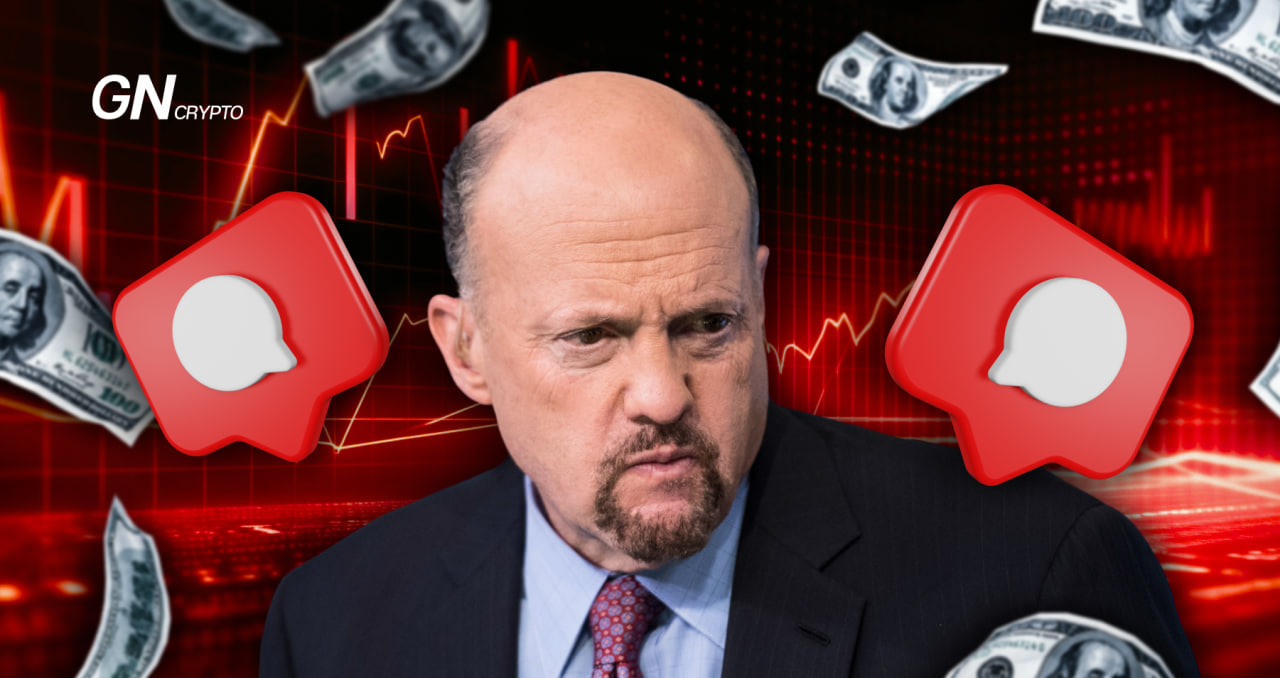Jim Cramer: Financier and His Controversial Investment Strategies

Jim Cramer is a TV host and a former hedge fund manager known for his controversial financial comments. He is one of the most famous personalities in the world of finance and entertainment. In this article, we explore some of Jim Cramer’s much-discussed comments, his views on Bitcoin, and his career background.
On this page
Quick Facts About Jim Cramer
- Birthdate: February 10, 1955
- Birthplace: Wyndmoor, Pennsylvania
- Education: Harvard University, Harvard Law School
- Books: Confessions of a Street Addict, You Got Screwed, Real Money, Mad Money, Stay Mad for Life, Getting Back to Even, Get Rich Carefully
- Background: Editor-in-chief at the Harvard Crimson newspaper, sales, and trading at Goldman Sachs, hedge fund manager, and founder at Cramer Berkowitz from 1987 to 2001
- Current Work: Host of Mad Money on CNBC, co-anchor of CNBC’s Squawk on the Street, contributor to TheStreet.com
- Net Worth: $150M according to Celebrity Net Worth
- Personal Life: Two daughters from the previous marriage, currently re-married
Why Jim Cramer’s Investment Strategies Rise Discussions?
Jim Cramer regularly shares advice on the financial market, including stocks, crypto, and commodities. He has more than 2M followers on X and his show Mad Money scores dozens of thousands of views on Youtube.
Jim Cramer’s official account on X. Source: twitter.com
While Cramer’s got lots of fans, he also has lots of critics who point out that his predictions didn’t work in some cases. The financier’s sharp comments often start extensive discussions.
For example, in December 2022, when Bitcoin price was around $17,100, Cramer advised crypto investors to sell their positions. His exact words were:
You can’t just beat yourself up and say, ‘hey, it’s too late to sell.’ The truth is, it’s never too late to sell an awful position, and that’s what you have if you own these so-called digital assets.
Later, in January 2024, Cramer posted on X that Bitcoin is unlikely to find its footing. 3 weeks after the post, Bitcoin surpassed $50,000.
In January 2024, Cramer changed his mind about Bitcoin, saying that it is here to stay and
You can’t kill it.
What Is the Inverse Cramer Strategy?
This strategy recommends buying a certain stock when Cramer advises selling, and vice versa. X user @BTCGandalf is among the critics of Jim Cramer who believe that investors can profit by going against his predictions.
Based on this idea, investment company Tuttle Capital Management launched the Inverse Cramer ETF (SJIM) in March 2023. The exchange-traded fund tracked Cramer’s public announcements to invest at least 80% of the Fund’s assets in the inverse of securities mentioned by Cramer.
Despite the company’s initial expectations, the ETF's performance fell short. It was down 15% since the launch and closed on February 13, 2024. This shows that although betting against Cramer can be profitable in some cases, investors need to be cautious with the strategy.
Inverse Cramer ETF Performance. Source: crameretfs.com
Popular Financial Comments Jim Cramer Has Made Over the Years
3 of Jim Cramer’s worst recommendations:
- In 2012, Cramer predicted Netflix stock to fall. The value went up by 174.49% in the following 6 months.
- In 2022, Cramer recommended not buying Coinbase stock, when it was trading at around $40. The price went up afterward. As of February 14, 2024, Coinbase trades at around $159.
- In 2023, Cramer recommended buying Silicon Valley Bank stock. The bank collapsed shortly after.
3 of Jim Cramer’s best recommendations:
- In 2010, Cramer was among the first to recommend buying Apple stocks. Since then the price has grown by over 1,000%.
- In 2017, Cramer recommended buying NVIDIA. The company has been setting records in market value through the years.
- In 2012, Cramer said buying Facebook stock would be a winning trade. Since then the value has increased by over 1000%.
Does Jim Cramer Give Good Financial Recommendations After All?
It’s worth considering that the financial market is volatile and following Cramer’s or any other financier’s advice blindly can lead to losses. Throughout his career, Cramer has made useful recommendations and mistakes. It’s up to each investor to decide whether to consider his comments or not.
The content on The Coinomist is for informational purposes only and should not be interpreted as financial advice. While we strive to provide accurate and up-to-date information, we do not guarantee the accuracy, completeness, or reliability of any content. Neither we accept liability for any errors or omissions in the information provided or for any financial losses incurred as a result of relying on this information. Actions based on this content are at your own risk. Always do your own research and consult a professional. See our Terms, Privacy Policy, and Disclaimers for more details.



























